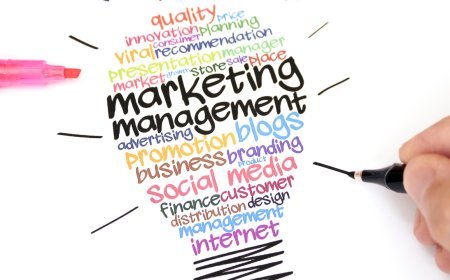Why AI Knowledge Is a Must Before Applying for Your Next Job in 2025
Artificial Intelligence (AI) is reshaping the job market, influencing hiring decisions across industries. Understanding AI can give you a competitive edge, whether you’re in tech, marketing, or healthcare. This article explores why AI literacy is essential for job seekers, how it impacts roles, and practical steps to boost your AI skills to stand out in 2025’s job market.

In 2025, Artificial Intelligence (AI) isn’t just for tech experts—it’s a game-changer for job seekers across all industries. From automating tasks to shaping hiring processes, AI is transforming how companies recruit and operate. A 2024 LinkedIn report reveals that 71% of employers now prioritize candidates with AI-related skills, even for non-technical roles. Whether you’re eyeing a job in marketing, finance, or healthcare, understanding AI can set you apart. This article explains why AI knowledge is critical before your next job application, how it’s reshaping the job market, and actionable ways to build your AI expertise.
Why AI Knowledge Matters for Job Seekers
AI is no longer a niche skill—it’s becoming a core competency. Here’s why you need to know about AI before applying for your next job:
1. AI Is Reshaping Job Roles
AI is automating repetitive tasks and creating demand for new skills. According to the World Economic Forum’s 2025 Future of Jobs Report, 60% of jobs will be impacted by AI, with roles in data analysis, customer service, and content creation seeing the most change. For example, marketers now use AI tools like Jasper AI to draft campaigns, while healthcare professionals leverage AI diagnostics to improve patient outcomes. Understanding AI’s role in your industry helps you align your skills with employer expectations.
2. Employers Value AI Literacy
Companies increasingly seek candidates who can navigate AI-driven workflows. A 2024 Indeed survey found that 65% of hiring managers prefer candidates familiar with AI tools, even for entry-level roles. For instance, IBM reported a 30% increase in job postings requiring AI knowledge, spanning roles from HR to supply chain management. Demonstrating AI literacy—whether it’s using ChatGPT for content creation or understanding AI analytics—shows you’re adaptable and future-ready.
3. AI Enhances Your Productivity
Familiarity with AI tools can boost your efficiency, making you a more attractive candidate. Tools like Grammarly, Canva’s AI features, or Microsoft Copilot streamline tasks like writing, design, and data analysis. A LinkedIn study notes that professionals using AI tools report a 25% increase in productivity. Showcasing your ability to leverage these tools signals to employers that you can deliver results faster and smarter.
4. AI Is Part of the Hiring Process
Many companies now use AI-driven tools for recruitment, from resume screening to interview assessments. According to Jobscan, 85% of Fortune 500 companies use AI-powered Applicant Tracking Systems (ATS) to filter candidates. Understanding how AI evaluates resumes—by prioritizing keywords and relevant skills—can help you tailor your application to pass these systems. Additionally, AI tools like AI-based interview platforms analyze responses, making it crucial to articulate your AI knowledge clearly.
5. Future-Proofing Your Career
AI is here to stay, and staying ahead of the curve ensures long-term employability. McKinsey’s 2025 report predicts that AI will create 12 million new jobs by 2030, particularly in AI-related fields like machine learning and data science. Even non-tech roles, like project management or sales, now require basic AI understanding to collaborate with tech teams or use AI-driven CRMs like Salesforce. Building AI skills now positions you for emerging opportunities.
How AI Is Changing Key Industries
AI’s impact varies by industry, but its influence is universal. Here’s how it’s reshaping popular job sectors:
1. Marketing and Content Creation
Marketers use AI for content generation, SEO optimization, and audience analysis. Tools like HubSpot’s AI suite help create personalized campaigns, with 55% of marketers using AI for content tasks, per HubSpot’s 2025 report. Job seekers with experience in AI tools like Copy.ai or MarketMuse can demonstrate their ability to drive engagement and conversions.
2. Healthcare
AI is revolutionizing healthcare through diagnostics, patient data analysis, and telemedicine. A 2024 study by Deloitte found that 40% of healthcare employers seek candidates familiar with AI tools like IBM Watson Health. Nurses, administrators, and doctors with AI knowledge can streamline workflows and improve patient care.
3. Finance and Business
In finance, AI powers fraud detection, risk assessment, and customer service chatbots. According to PwC, 70% of financial institutions use AI, and roles like financial analysts now require familiarity with AI tools like Tableau or Power BI. Job seekers who understand AI-driven analytics can stand out in competitive fields.
4. Customer Service
AI chatbots and virtual assistants handle 80% of routine customer inquiries, per Gartner’s 2025 report. Customer service roles now demand familiarity with platforms like Zendesk AI, where agents oversee AI interactions and handle complex queries. Knowledge of AI workflows enhances your value in these roles.
Practical Steps to Build AI Knowledge
You don’t need to be a coder to gain AI literacy. Here are actionable steps to prepare for your next job application:
1. Learn AI Basics
Start with free online courses to understand AI fundamentals. Platforms like Coursera (e.g., Google’s AI Essentials) or edX offer beginner-friendly courses on AI concepts, machine learning, and generative AI. Aim for 5-10 hours of learning to grasp key terms like “machine learning,” “natural language processing,” and “generative AI.”
2. Experiment with AI Tools
Get hands-on experience with tools relevant to your field. For example:
-
Marketing: Try Jasper AI or Grammarly for content creation.
-
Data Analysis: Use Google Sheets’ AI features or Microsoft Copilot for insights.
-
Design: Experiment with Canva’s AI tools or Midjourney for visuals. Many tools offer free trials, allowing you to build practical skills without upfront costs.
3. Highlight AI Skills on Your Resume
Incorporate AI-related skills into your resume and cover letter. Use specific examples, like “Used ChatGPT to draft marketing content, improving campaign efficiency by 20%.” Tailor your resume with keywords like “AI literacy,” “data analysis,” or “automation tools” to pass ATS filters. A Jobscan study found that resumes with AI-related terms are 40% more likely to reach recruiters.
4. Stay Updated on AI Trends
Follow industry trends to discuss AI confidently in interviews. Subscribe to newsletters like The Algorithm by MIT Technology Review or follow AI thought leaders on platforms like X. Mentioning recent developments, like advancements in generative AI, shows you’re proactive and informed.
5. Join AI-Focused Communities
Engage with online communities like LinkedIn AI groups or Reddit’s r/MachineLearning to learn from professionals and share insights. Networking with AI-savvy peers can also lead to job referrals and mentorship opportunities.
Challenges and How to Overcome Them
While AI knowledge is valuable, there are hurdles to consider:
1. Keeping Up with Rapid Changes
AI evolves quickly, making it hard to stay current. Focus on foundational skills and versatile tools like ChatGPT, which remain relevant across updates. Set aside 1-2 hours weekly to read AI blogs or take short courses.
2. Avoiding Overwhelm
The vastness of AI can feel daunting. Start with tools specific to your industry and gradually expand your knowledge. For example, marketers can prioritize SEO tools, while analysts focus on data visualization platforms.
3. Ethical Concerns
AI raises ethical questions, like bias in hiring algorithms. Understand these issues to discuss them intelligently in interviews. For instance, mention your awareness of fair AI practices, which 30% of employers value, per a 2024 SHRM survey.
Real-World Success Stories
-
Marketing Coordinator: Sarah, a recent graduate, landed a role at a digital agency by showcasing her experience with Canva’s AI tools and HubSpot’s content generator, boosting her resume’s appeal.
-
Financial Analyst: John secured a fintech job by completing a Coursera AI course and mentioning his use of Tableau for predictive analytics in his interview.
-
Customer Service Rep: Maria stood out at a retail company by demonstrating familiarity with Zendesk AI, which streamlined customer query handling.
The Future of AI in the Job Market
By 2030, AI is expected to automate 30% of current jobs while creating new roles, per McKinsey. Emerging positions like AI ethics consultants, prompt engineers, and AI trainers are already in demand. Additionally, hybrid roles combining AI with human skills—like AI-assisted content strategists—are on the rise. Staying AI-literate ensures you’re ready for these opportunities and can adapt to evolving job requirements.
Conclusion
AI is no longer optional—it’s a critical skill for job seekers in 2025. From enhancing productivity to navigating AI-driven hiring processes, understanding AI gives you a competitive edge. By learning the basics, experimenting with tools, and showcasing your skills, you can stand out in a crowded job market. Start small with free resources, stay curious, and position yourself as a future-ready candidate. Ready to boost your career? Explore AI courses on Coursera or connect with professionals on LinkedIn to kickstart your journey today.
Sources
-
LinkedIn 2024 Workforce Report
-
World Economic Forum, Future of Jobs Report 2025
-
Indeed 2024 Hiring Trends Survey
-
McKinsey Global Institute, The Future of Work 2025
-
Jobscan, AI in Recruitment Report 2024
What's Your Reaction?
 Like
1
Like
1
 Dislike
0
Dislike
0
 Love
0
Love
0
 Funny
0
Funny
0
 Angry
0
Angry
0
 Sad
0
Sad
0
 Wow
0
Wow
0








